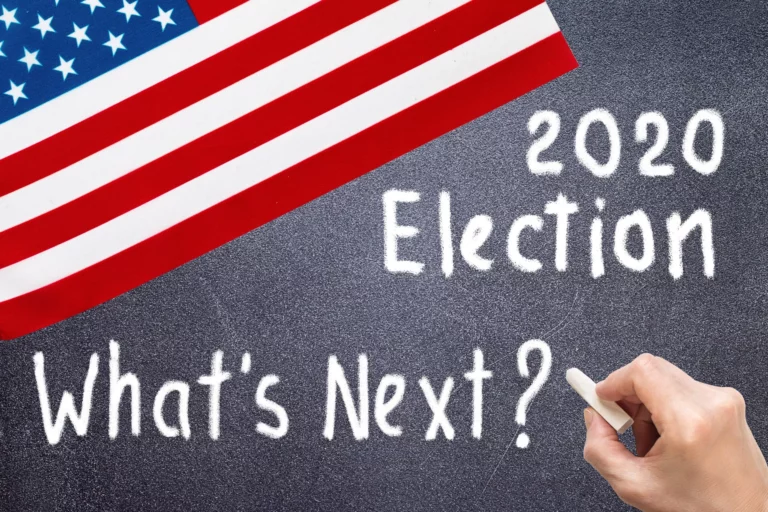The SY2021 school year is presenting a number of challenges for educators — too many to count. In the coming week, national (and local) elections may contribute to that challenge. The current identity polarization in the US — across lines of race, politics, gender, ethnicity, language and more — will undoubtedly show up in conversations around the elections this week in virtual and in-person learning spaces. What can teachers do to be intentional in these teaching moments?
A primary move for educators to make (always, tbh, but particularly this week) is to reaffirm your classroom as a learning environment grounded in relationships and respect. Being intentional about creating this space means asking ourselves some of the questions we use at CT3 to interrogate racist practices. When educators ask these questions in/about their classrooms and their students, they’re able to identify gaps that need to be addressed, filled, or removed for their students to feel whole:
- Whose voices are heard and whose aren’t? How can you make room for all voices to be heard?
- Who is encouraged to think critically, to analyze, to evaluate? Who is encouraged to accept what is presented without question?
- Whose culture and history are celebrated and addressed truthfully, in the voices of those who have experienced it? Whose culture and history are sidelined, or presented through the lens of someone else?
- Whose identity is welcomed and honored? Whose is not?
- Who feels safe and who doesn’t?
- Who has power and who doesn’t?
Elections this week — for some students — may directly harm their identities or have immediate and impactful consequences for them and their families. The advertisements, the social media, the rhetoric from some of the candidates may have also caused harm, and educators must recognize when they (fill your cup first) or their students may not be able to engage in discussions about the election for their own safety and well-being.
Helping students understand that there is space in your classroom for many ideas, perspectives and opinions, and room for respectful and civil dialogue around all of those is a critical second step. Agreement is not the goal; the goal is being able to engage in respectful conversation (and maybe disagreement) with someone who does not share your perspective. We’re not providing the best models for our children on this front right now, and educators should feel brave enough to say that. Tell the children the truth!
By now, educators have: (1) reaffirmed their classrooms as grounded in relationships and respect, and (2) set expectations around respectful and civil dialogue around the myriad perspectives their students hold. Now, how do they talk about the election? There are numerous resources available for prompting discussion and debate, analyzing history (particularly primary documents) related to voting and voting rights, and supporting young people to take action to make this world a better place. Deciding which of these options (or others) you want to explore depends on your students’ needs.
Below is a list of resources that support any of these paths (and others):
- Teaching the 2020 Election: What Will You Do on Wednesday is a resource targeted at educators and focused on supporting themselves and their students
- I Side With…can be used with upper elementary students and adults. It’s accessible and easy to use and looks at both national and state races.
- Using the Election as a Teaching Tool has tons of resources for cross-curricular integration of election issues, results and analyzing media sources. Also, lots of links to other resources within this one from Edutopia.
- ProCon.org is a non-partisan site that approaches political issues with pro and con lists.
- 4 Lesson Plans for Talking to Students About the 2020 Election is a blog from Clever that links to games to take students deeper into the election process (grades 6-10+); learn about the history of contested elections (grades 3-12); learn about the electoral college (grades K-12 and features some Sesame Street characters); or bring the election to life with articles from Newsela.
- Ted-Ed has a large library of videos on civic education that look at historical and current events across a range of civic issues and has aligned lesson plans for thinking about and discussing the videos.
Caring for our students is our primary goal, no matter who wins any local, state, or national election. So, on November 4, 2020, show up for your students in ways that support, humanize, celebrate, and amplify their voices. Do the same with your family and encourage students to do the same with their families. With each conversation, we take a step towards a more inclusive, civil and honest America.
By Nataki Gregory, Ed.D., Chief Executive Officer, CT3
CT3 transforms the quality and culture of education for youth, especially those in traditionally disenfranchised communities.
Check out CT3 Education programs such as No-Nonsense Nurturer, Real Time Teacher Coaching, and Real Time Leadership Coaching to find out more about Professional Development for Teachers and Leaders, classroom management strategies, and building relationships with students and their families, and properly addressing important issues in the classroom and school.
Category: Change, Students, Teaching


